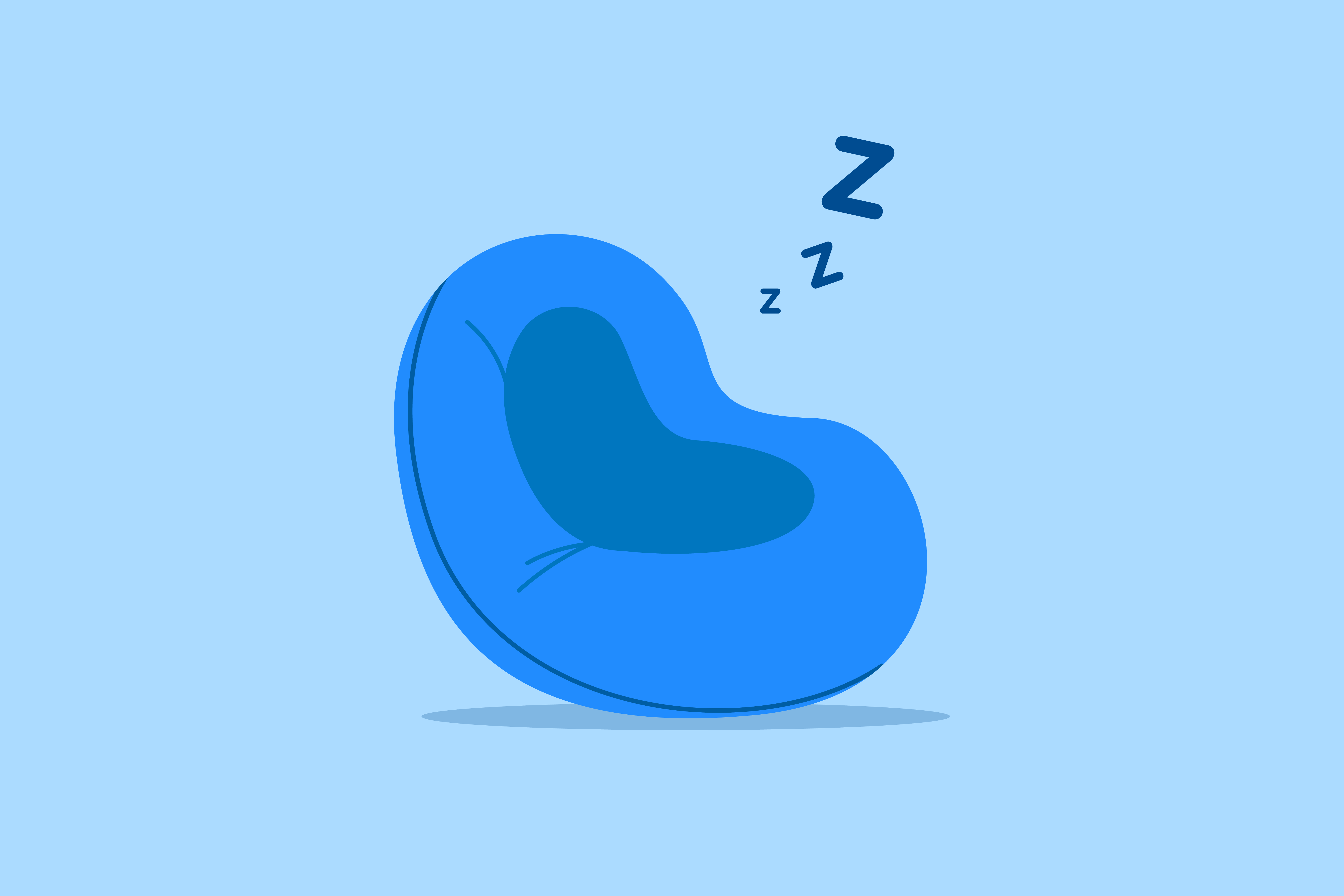Key Takeaways
- How Common is Childhood Snoring: Snoring is not uncommon in children. While occasional snoring due to factors like colds or allergies is usually not a cause for concern, persistent snoring in children can be indicative of underlying health issues. Red flags include frequent loud snoring, pauses in breathing, daytime fatigue, bedwetting, headaches, obesity, or difficulty concentrating.
- Why Is My Child Snoring: Common reasons for persistent snoring in children include enlarged tonsils or adenoids, allergies, asthma, anatomic anomalies like a deviated septum, obesity, and more. Identifying the underlying cause is crucial for effective management.
- Treating Childhood Snoring: Management options for reducing snoring in children include treating underlying causes, maintaining a healthy weight, improving sleep hygiene, encouraging side-sleeping, elevating the head during sleep, surgery (e.g., tonsillectomy or adenotonsillectomy), or using CPAP therapy if recommended by a healthcare professional.
While snoring is commonly associated with adults, research indicates Verified Source National Library of Medicine (NIH) World’s largest medical library, making biomedical data and information more accessible. View source that snoring affects anywhere from 10 to 12 percent of children. Typically, snoring in children is an acute occurrence stemming from a cold or allergies and not a cause for alarm. Snoring that is persistent, however, could be an indicator of a larger health issue.
Ahead, we take a look at a few reasons your child is snoring, when and why their snoring may be cause for concern, and we share some tips on how you can help reduce your child’s snoring.
What is Snoring?
Snoring occurs when the soft tissues in the throat relax and partially block the airflow through your mouth and nose. As air passes around that blockage, the soft tissue vibrates, resulting in the familiar sound of snoring. Snoring tends to vary in decibel levels from night to night and person to person. Generally, the more narrow the airway becomes, the louder the snoring.
Primary Snoring Vs. Obstructive Sleep Apnea
If your child snores intermittently or a couple of times a week with no other symptoms or lingering effects the next day, that blockage might be a simple case of primary snoring. However, sometimes, what may appear to parents as persistent snoring, may, in fact, be a case of obstructive sleep apnea in children.
It can be pretty hard to distinguish between Verified Source National Library of Medicine (NIH) World’s largest medical library, making biomedical data and information more accessible. View source the two, but there are ways to tell. Simply put, snoring is just a result of impeded airflow through the nose and throat, and the hallmark of snoring is a loud sound. Sleep apnea, on the other hand, is a pause or cessation of your child’s breathing.
The conclusion of an apnea is often marked by a gasp for air. These events can occur dozens and even hundreds of times per night, and they can cause fragmented or interrupted sleep.
Moreover, sleep apnea can lead to daytime fatigue or tiredness and cognitive impairment. The long-term prognosis for sleep apnea is even more alarming as it can lead to Verified Source Harvard Health Blog run by Harvard Medical School offering in-depth guides to better health and articles on medical breakthroughs. View source hypertension and diabetes if left unchecked.
5 Reasons Your Child Is Snoring
If your child’s snoring has moved from intermittent to persistent, here are some common risk factors that could be to blame.
Enlarged Tonsils or Adenoids
Enlarged tonsils or adenoids Verified Source National Library of Medicine (NIH) World’s largest medical library, making biomedical data and information more accessible. View source can narrow airways causing your child to snore. For some kids, acute bouts of snoring may be the result of infections like strep or the common cold that lead to tonsillitis. Verified Source Medline Plus Online resource offered by the National Library of Medicine and part of the National Institutes of Health. View source Others may just have naturally larger tonsils or adenoids, which leads to snoring.Allergies/Cold or Flu
Allergies, colds, and flu can lead to inflammation in the nose and throat, triggering snoring in your child.
To help them sleep better during the flu season or when they’ve got a cold, raise their head with a thick pillow and try over-the-counter treatments such as nasal drops or sprays. If the congestion persists or if your child is experiencing other symptoms, such as a persistent cough or difficulty breathing, consult a healthcare professional for advice and appropriate treatment.
Asthma
Listed as Verified Source National Library of Medicine (NIH) World’s largest medical library, making biomedical data and information more accessible. View source one of the most chronic diseases in children ages 1 to 17 years old, asthma is an inflammatory disease of the lower and upper airway. The narrowing of the child’s airway often leads to snoring, and studies have shown Verified Source National Library of Medicine (NIH) World’s largest medical library, making biomedical data and information more accessible. View source that asthma and snoring tend to coexist.Anatomic Anomalies
A deviated septum Verified Source Medline Plus Online resource offered by the National Library of Medicine and part of the National Institutes of Health. View source is a condition where the nostrils are not separated equally, and one side is more narrow than the other. This anatomic anomaly can lead to persistent mouth breathing and snoring.
Obesity
Excess neck fat is usually par for the course of obesity, and when your child lays down, that neck fat compresses and narrows their upper airway, causing them to snore. Research has Verified Source National Library of Medicine (NIH) World’s largest medical library, making biomedical data and information more accessible. View source even shown that overweight or obese children are more likely to snore.
When Is Snoring in Children a Cause for Concern?
Snoring doesn’t necessarily indicate a serious problem. In the cases where your child is battling a seasonal cold or flu, you know what the cause is, so it’s relatively easy to keep your concerns in check.
However, if you notice any of the following red flags, you may want to speak with your child’s doctor as their snoring may be the result of a more serious condition.
- Your child snores most nights of the week
- You hear a pause in their breathing or a gasp for air
- Their snoring is exceptionally loud
- They don’t feel refreshed upon waking
- Daytime sleepiness or fatigue
- Late onset bedwetting
- Frequent headaches
- Obesity
- Difficulty concentrating, learning, or focusing
Some of these symptoms could be an indicator of sleep-disordered breathing or sleep apnea. Over the long-term, these symptoms may not only affect your child’s sleep quality and quantity, but they can adversely impact your child’s physical, mental, and emotional well-being.
How to Reduce Snoring in Children
The first step toward helping your child with snoring is to speak with your doctor or pediatrician. Not only can your doctor determine if your child has any underlying health issues, but they can also recommend additional testing and next steps for a definitive diagnosis. In some cases, the next step may include things you can do at home or lifestyle changes your child can make to relieve their snoring.
In other cases, the next step may be a referral to an otolaryngologist (or an ENT specialist) or perhaps a sleep study. Once a diagnosis has been made, you, your child, and your doctor can then proceed with the best treatment options. Lifestyle changes or treatment options for your child’s snoring may include any or all of the following.
Treat Any Underlying Causes of Acute Snoring
If your child is snoring as a result of allergies, cold, or flu, you should speak with your doctor to determine how best to manage the symptoms that tend to accompany these illnesses or conditions. For example, a benefit of air purifiers is eliminating allergens that may be floating in the air, so you may want to set one up in your child’s bedroom.
By looking into home remedies for allergies or medication that can alleviate any accompanying inflammation, you may be able to curb your child’s snoring quickly and easily.
Weight Management
Obesity is a common factor for sleep apnea, and in turn, weight gain is tied to sleep apnea as a symptom. If you or your doctor believe that excess weight could be why your child is snoring, you might try some doctor-recommended measures to help your child manage their weight.
Changes to Their Sleep Hygiene
Sleep hygiene is all the things you and your child do to ensure a better night’s sleep. If your child is snoring to the point where you see a difference in their sleep quality and a residual effect in their daytime habits or energy levels, you can make small changes to their sleep hygiene in an effort to improve their quality of sleep.
Above all else, make sure that your child keeps a consistent sleep schedule. A regular sleep schedule is crucial for anyone, but particularly so for a child who snores as overtiredness could lead to snoring. Beyond keeping a regular sleep schedule, you want to make every effort to keep their sleep environment quiet, cool, and comfortable.
Have Your Child Sleep on Their Side
To keep your child’s snoring to a minimum, you can encourage them to sleep on their side (if they’re old enough to follow directions). If your child is too young or to facilitate this process without having to keep vigil, try sewing a tennis ball into the back of their pajamas. This will prevent them from rolling over unknowingly.
Elevate Your Child’s Head
Elevating your child’s head while they sleep is a good way to prevent their tongue from falling to the back of their throat, which can lead to a blocked or narrow airway and snoring.
Ideally, you should raise the head of their bed anywhere from 4 to 6 in, and you’ll want to do this by raising actually raising that portion of the bed—bricks or a wooden platform can be helpful here. If your child is old enough to use one safely, you may want to consider an adjustable bed.
Arranging a pile of pillows to prop up their head generally does not work. If you want to raise their head with a pillow, try using a wedge pillow designed for children.
Surgery
Tonsillectomy or adenotonsillectomy Verified Source Medline Plus Online resource offered by the National Library of Medicine and part of the National Institutes of Health. View source are often reserved for children with severe sleep apnea, and depending on the severity of your child snoring it may be an option. With this treatment, surgeons remove the tissue that blocks your child’s airway while they sleep. In many cases, tonsillectomies and adenotonsillectomy are quite successful at reducing snoring.It’s important to know, though, that there is a bit of downtime for your child. The recovery process of surgery for sleep apnea can be difficult for the little ones.
CPAP Therapy
CPAP machines push pressurized air through a mask and into the airway of the person using it to keep it open. These CPAP devices are more commonly used to treat obstructive sleep apnea in adults, but they may be used in children for snoring that persists after a tonsillectomy or adenoidectomy.
Frequently Asked Questions
When should I be concerned about my child snoring?
If your child snores every night, is a loud snorer, has pauses in breathing, or is restless during sleep, you should talk to your child’s doctor about it. Snoring can be a sign of pediatric sleep apnea, a sleep disorder that can cause problems with your child’s development and behavior. Your child’s doctor may recommend a sleep study to see if there are any issues to address.
Seeking a diagnosis and treatment for snoring can ensure your child is getting the sleep they need to thrive.
How can I tell if my child has sleep apnea?
If your child snores loudly and frequently, has pauses in breathing during sleep, or gasps or chokes during sleep, they may have sleep apnea. Other symptoms may include difficulty waking up in the morning, daytime sleepiness, difficulty paying attention at school, and behavioral problems. Talk to a pediatrician if you suspect that your child may have sleep apnea.
How do you know if your child has enlarged adenoids?
Enlarged adenoids can cause snoring and sleep apnea in children. Other symptoms of too-large adenoids may include a stuffy or runny nose, difficulty breathing through the nose, and frequent ear infections. A pediatrician can look at your child’s throat and may recommend a home sleep study to determine if enlarged adenoids are causing your child’s snoring.
How do I stop my child’s snoring?
To help reduce your child’s snoring, make sure they are sleeping on their side rather than their back. Keep their bedroom cool, dark, and quiet. Reduce their exposure to allergens and irritants, such as dust and smoke, and if possible invest in an air purifier for their bedroom.
If your child is overweight, encouraging a healthy diet and exercise can also help reduce snoring. Talk to a doctor if your child’s snoring persists.
How do I know if my child has a sleeping disorder?
If your child is having trouble falling asleep, staying asleep, or waking up in the morning, they may have a sleep disorder. Other symptoms may include daytime sleepiness, difficulty paying attention, hyperactivity, and behavior problems.
Talk to a doctor if you suspect that your child may have a sleeping disorder. A sleep study Verified Source Medline Plus Online resource offered by the National Library of Medicine and part of the National Institutes of Health. View source may be recommended to determine the cause of your child’s sleep problems.
Conclusion
Though it’s often associated with older adults, snoring is relatively common in children. In some cases, children may experience primary snoring, which is infrequent and typically doesn’t cause any residual effects during the day, nor does it lead to any long-term issues.
Or parents may find that snoring is a result of an acute illness such as the cold or flu or even benign chronic conditions like allergies. In other cases, obesity and anatomic anomalies can lead to snoring.
If your child snoring becomes persistent, you may want to pay closer attention and look for signs of sleep apnea. If you think sleep apnea may be the cause of your child snoring, your next step should be to speak with your doctor.
Managing your child’s snoring may be as easy as some simple lifestyle changes and maybe a few clever hacks. Surgery for sleep apnea and CPAP or BiPAP therapy are also alternatives for more severe cases. At the end of the day, speaking to your doctor and getting a clear diagnosis is the only way to know which treatment is best for your child.
About the author
Sharon Brandwein is a Certified Sleep Science Coach and freelance writer with a focus on beauty, lifestyle, and sleep content. Her work has been featured on ABC News, USA Today, and Forbes, demonstrating her ability to deliver engaging and informative articles. When she's not writing, Sharon enjoys curating a wardrobe for her puppy, showcasing her eye for style and detail.
View all posts





